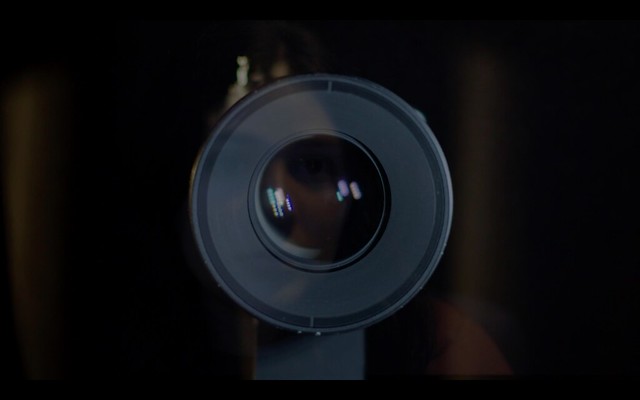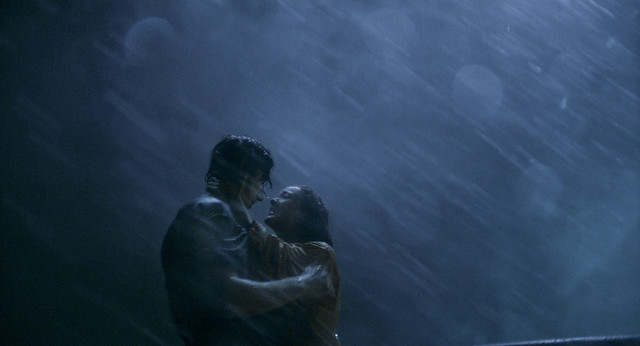After last year's all online edition, Japan Cuts, North America's largest showcase for new Japanese films, has chosen to go for a combination of online and in-person screenings (at Japan Society, NYC) for their 15th edition, taking place 8/20 - 9/2. The festival is divided in Feature Slate, Next Generation, Classics, Documentary Focus, Experimental Spotlight, Shorts Showcase, Narrative Shorts and Experimental Shorts, totaling 38 films.
The 15th Edition of Japan Cuts kicks off with the U.S. Premiere of Matsumoto Soushi's charming Sci-fi and samurai tinged celebration of cinema, It's a Summer Film! For centerpiece presentation, Kurosawa Kiyoshi's Venice Film Festival winner, Wife of a Spy. Other highlights are an in-person screening of the late Obayashi Nobuhiko's 3 hour swan song Labyrinth of Cinema, 2K restored version of the cult classic, Hiruko the Goblin and Miike Takashi's The Great Yokai War: Guardians.
Without further a do, here are 5 films I was able to sample:
It's a Summer Film!
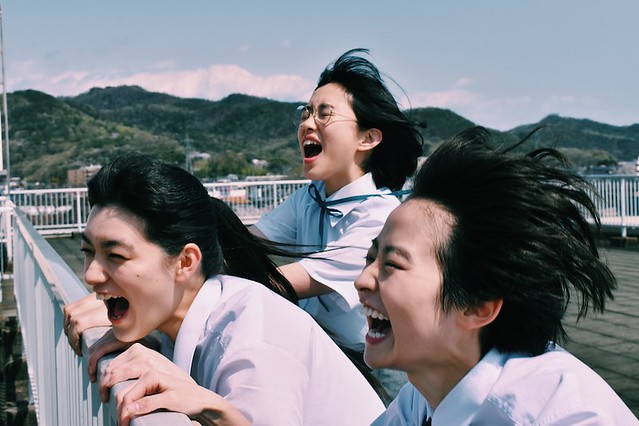
It's a bubbly love letter to cinema with gaggle of high school girls. It stars Japanese idol singer Ito Marika (former Nogizaka 46 member) as a high schooler, Barefoot, who is obsessed with chanbara films and a Katsu Shintaro (Zatoichi) enthusiast. She is in a school film club but disillusioned by the films they produce - directed by and starring her rival popular girl Karin and her entourage. Barefoot decides to make her own samurai film to counter Karin's saccharine rom-com at the year end screening. With her best friends - Kendo champ Blue Hawaii and sci-fi nerd Kickboard and a rag-tag film crew, Barefoot embarks on a harrowing journey of indie filmmaking.
Even though she prefers brusk hero than a pretty boy type, Barefoot can't stop falling for her main actor Rintaro, a handsome time-traveling stranger she chose as her main actor in her film titled, "Samurai Spring." You see, in the future, there is no such thing as movie theaters, movies are only 5 seconds long and the traditional notion of cinema is non-existing. She needs to save the future of cinema!
It's a Summer Film! is a cute, airy comedy geared towards
Stranger Things crowd.
Wife of a Spy *Centerpiece Film

Satoko (Aoi Yu), an unassuming young housewife of a wealthy merchant suspects that her husband is involved in something dangerous. The year is 1940. The place is Kobe. And Japan is slowly hurtling toward authoritarian nightmare before the World War II. Kurosawa Kiyoshi directs this period thriller off the script written by Yamaguchi Ryusuke and his writing partner Nohara Tadashi (
Happy Hour,
Asako I & II) .
Wife of a Spy involves atrocities committed by the occupying Japanese army in Manchuria, experimenting biological weapons on civilian population. It's a very straight forward wartime intrigue with a stellar performance by Aoi as an innocent woman who has her blind devotion to her husband tested and gets embroiled in an international espionage. The film might not feel like a usual KK film, but a solid one nonetheless.
Wonderful Paradise
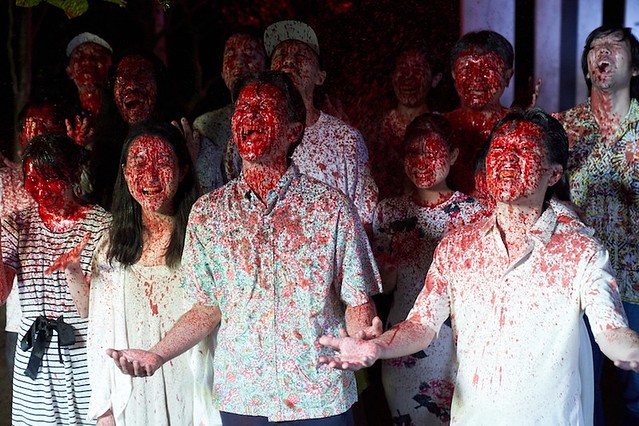
Moving is never easy and letting go even more difficult. It's a moving day for the Sasayas from their large opulent house, because dad had some gambling debts and bad investments. While packing and being nostalgic about mementos strewn about the house, disaffected Akane, the daughter of the family, unwittingly tweets that there will be a party in the empty house with their address. So starts Yamamoto Masaki's madcap comedy
Wonderful Paradise. There will be several dead bodies, a gay wedding, a funeral,
The Thing inspired coffee bean monster, moving statues with laser beam shooting eyes, strippers, a choreographed dance number, traditional singing, ghosts, synchronized sex scenes, rebirths, a kid turning into a tree branch, a makeshift drug lab, a yakuza gambling den.... By the end of it, Sasayas learned something about life and themselves and finally let things go. Life is one big party.
Mari and Mari
 Mari and Mari
Mari and Mari plays out like a Murakami Haruki novel. Norio (Maehara Kou) is a mild mannered 30-something working at a small casting agency. He is very much in love with Mari (Nao), his long time live-in girlfriend. Their almost nauseating lovey-dovey behavior is an easy target for both ridicule and envy of his co-workers. They even have a corny song of their own that they hum to each other. Then one day, Mari disappears and replaced by childlike girl (Amano Hana), also named Mari. This new Mari doesn't remember where she came from. She is just materialized in his apartment. Norio looks for his old Mari everywhere to no avail. He demands the new Mari to leave but she always returns.
In a very subtle manner, when it comes down to it, director Yamanishi Tatsuya seems to suggest that it's not a particular person but rather the idea of a person in a certain mould that you fall in love with.
As the new Mari sticks around, Norio begins to accept her as his girlfriend. They sing the same song, make fun of each other's silly habits. It's an intriguing film by first time director writer Yamanishi.
The Blue Danube

Ikeda Akira's droll anti-war film
The Blue Danube starts with Tsuyuki (Maehara Kou) waking up at the sound of a marching band. As he reports to the army barracks for 9 to 5 shifts, wasting his life away shooting at invisible enemies across the river without a question like a clockwork. "Do as you are told without question" rules this town and everyone follows its rigid army style way of living. No one remembers how long the town has been at war with its neighboring town and the reason for the conflict. They just assume that the town across the river is horrible and its people are savages.
Things change after the new young recruit soldier starts questioning the ongoing conflict. Meantime, Tsuyuki is transferred to join the marching band after its trumpeter suddenly dies.
With intentionally stilted acting and droll delivery of the actors, repetitions and absurd deadpan humor, Ikeda pokes fun of Kafkaesque bureaucracy combined with blind trust in inept authorities and fear tactics instilled in people's mind in the war time.
The Blue Danube highlights the meaninglessness of war.
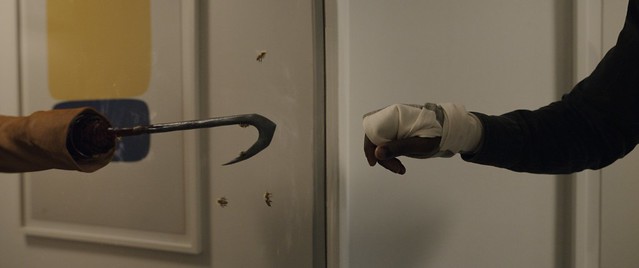 Nia DaCosta's Candyman pays a great deal of tribute to Bernard Rose's 1992 cult classic and builds upon it for the BLM era with much more agency. She and co-writer/producer Jordan Peele acknowledge the progresses the African Americans have made in the US over decades but also remind us that we still live in a white society and it is important not to forget the past.
Nia DaCosta's Candyman pays a great deal of tribute to Bernard Rose's 1992 cult classic and builds upon it for the BLM era with much more agency. She and co-writer/producer Jordan Peele acknowledge the progresses the African Americans have made in the US over decades but also remind us that we still live in a white society and it is important not to forget the past.





